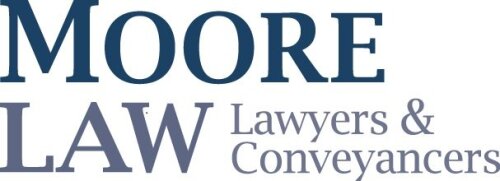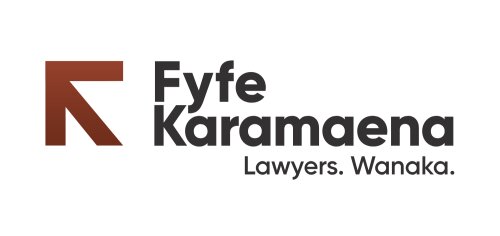Best Pension Lawyers in New Zealand
Share your needs with us, get contacted by law firms.
Free. Takes 2 min.
Or refine your search by selecting a city:
List of the best lawyers in New Zealand
About Pension Law in New Zealand
Pension law in New Zealand is primarily governed by the country's retirement income policy framework, which includes the New Zealand Superannuation and KiwiSaver schemes. New Zealand Superannuation (NZ Super) is a government-funded universal pension available to eligible residents aged 65 and over. KiwiSaver is a voluntary, work-based savings initiative designed to help New Zealanders save for their retirement.
These systems aim to provide financial support to retirees. However, understanding the details of eligibility, contribution requirements, and entitlements can be complex, requiring individuals to familiarize themselves with current legislation and their personal circumstances to optimize their retirement benefits.
Why You May Need a Lawyer
Consulting a lawyer can be beneficial in several scenarios related to pension issues:
- Pension Disputes: Disagreements over entitlements or access to pension funds may require legal intervention to resolve.
- Complex Financial Situations: Individuals with complex financial portfolios may need advice on how these affect their pension entitlements.
- Compliance Issues: Ensuring compliance with pension laws, especially for employers managing contributions and related obligations.
- Estate Planning: Including pension entitlements in a will or trust to prevent complications for heirs.
- Changes in Legislation: Keeping up with changes in laws that might impact pension savings and withdrawals.
Local Laws Overview
Several key aspects of New Zealand's pension-related laws play an important role:
- New Zealand Superannuation: Available to residents aged 65 and over, with certain residency requirements. It's not means-tested, meaning entitlement isn’t directly affected by other income or savings.
- KiwiSaver: A voluntary scheme that involves employees, employers, and the government in contributions. Members can access funds usually when they turn 65 or for specific purposes like buying a first home.
- Tax Implications: Contributions to KiwiSaver have tax benefits, but withdrawal rules may include tax obligations.
- Overseas Pensions: New Zealand’s direct deduction policy might affect New Zealand Super for people receiving foreign pensions.
Frequently Asked Questions
What is the eligibility criteria for New Zealand Superannuation?
To qualify for NZ Super, you must be 65 or older, a New Zealand citizen or permanent resident, and have lived in New Zealand for at least 10 years since the age of 20, with 5 of those years after age 50.
Is KiwiSaver mandatory for all employees?
No, KiwiSaver is not mandatory. Employees are automatically enrolled but have the choice to opt-out within the first 8 weeks of being enrolled.
Can I receive both New Zealand Super and an overseas pension?
It depends. NZ has policies that may adjust the NZ Super if you receive certain overseas pensions to ensure fairness and avoid double-dipping.
How do KiwiSaver contributions work for self-employed individuals?
Self-employed individuals can choose their contribution rate and don’t have to make regular contributions unless they wish to, unlike salary and wage earners who have fixed contribution rates.
Can I withdraw my KiwiSaver funds early?
Usually, funds are accessible at 65, but early withdrawal is possible for first-home purchases, significant financial hardship, permanent migration, or serious illness.
Are my KiwiSaver contributions taxed?
Employee contributions are after tax, but the government contribution and employer contributions are pre-tax. Investment earnings in the fund are taxed.
What happens to my pension in case of divorce or separation?
In New Zealand, KiwiSaver can be considered relationship property and might be split in the event of a divorce or separation. Legal advice is recommended for such situations.
How can employers manage their KiwiSaver obligations?
Employers must contribute a minimum of 3% to employees' KiwiSaver accounts, deduct and forward employee contributions, and provide enrolment forms to new employees.
What is the maximum government contribution in KiwiSaver?
The government contributes $521.43 annually if you contribute at least $1,042.86 per year. This is known as the member tax credit.
Do I need a lawyer to create a retirement plan?
While not necessary, a lawyer can provide valuable insight into legal implications and options available for optimizing retirement plans in conjunction with financial advisors.
Additional Resources
For more information or assistance, these resources may be helpful:
- Sorted: Offers guides and tools for KiwiSaver and retirement planning.
- Inland Revenue Department (IRD): Provides tax details regarding pension contributions and withdrawals.
- Ministry of Social Development (MSD): Offers information on New Zealand Superannuation eligibility and applications.
- Financial Markets Authority (FMA): Oversees KiwiSaver providers to ensure compliance with regulations.
Next Steps
If you're seeking legal advice concerning pensions, consider the following steps:
- Research and identify a lawyer with expertise in pension and retirement law.
- Gather all relevant documentation, such as pension statements, KiwiSaver details, employment contracts, and any correspondence pertinent to your case.
- Schedule an initial consultation to evaluate your legal needs and potential courses of action.
- Explore whether legal aid may apply to your situation if financial constraints are a concern.
- Remain informed about changes in pension law by regularly reviewing updates provided by relevant governmental agencies.
Lawzana helps you find the best lawyers and law firms in New Zealand through a curated and pre-screened list of qualified legal professionals. Our platform offers rankings and detailed profiles of attorneys and law firms, allowing you to compare based on practice areas, including Pension, experience, and client feedback.
Each profile includes a description of the firm's areas of practice, client reviews, team members and partners, year of establishment, spoken languages, office locations, contact information, social media presence, and any published articles or resources. Most firms on our platform speak English and are experienced in both local and international legal matters.
Get a quote from top-rated law firms in New Zealand — quickly, securely, and without unnecessary hassle.
Disclaimer:
The information provided on this page is for general informational purposes only and does not constitute legal advice. While we strive to ensure the accuracy and relevance of the content, legal information may change over time, and interpretations of the law can vary. You should always consult with a qualified legal professional for advice specific to your situation.
We disclaim all liability for actions taken or not taken based on the content of this page. If you believe any information is incorrect or outdated, please contact us, and we will review and update it where appropriate.
Browse pension law firms by city in New Zealand
Refine your search by selecting a city.

















